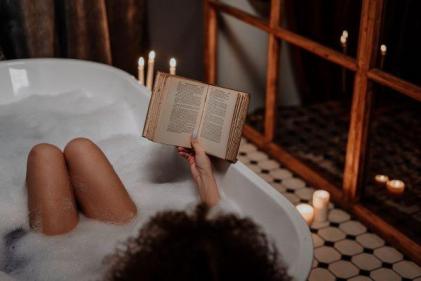Incontinence is a medical issue few feel comfortable talking about, but is actually quite common.
In fact, at least one in two women will deal with incontinence at some point in their lives, according Professor Barry O’Reilly, a consultant urogynaecologist at Cork University Maternity Hospital.
Danielle Lloyd recently opened up about her own struggle with incontinence after having children.
The English model is mum to four young boys, and decided to undergo a vaginal rejuvenation treatment in order to regain control of her bladder again.
“When you have a baby it all drops," the 34-year-old shared on ITV's This Morning, “Even things like going to the gym became hard for me. I had to say to my personal trainer ‘I can’t do that because I might wet myself’. It gets embarrassing."
She found it difficult to control her bladder when she sneezed, coughed, or exercised. “It has really changed my life,” she shared.
Now Professor O'Reilly hopes that other women follow in Danielle's footsteps and begin to talk about this issue more openly. Incontinence has significant links with depression, he said, and it can lower one's self-esteem.
He told the Irish Independent that the public needs to be better educated about the pelvic floor so that young women can develop healthy habits, as incontinence is an issue that affects women of all ages:
“It can affect women at different life stages, it’s not just the elderly, it can be bed wetting at a young age, and if that’s prolonged and not dealt with girls tend to grow up to have urinary issues. In teens, we see it again if bed wetting occurred at an earlier age and wasn’t properly addressed."
Professor O'Reilly further explained, "Certain lifestyle factors affect urinary issues … women get into bad bladder habits if they’re working shifts, if they’re a nurse or teacher, and they’re working all day without going to the toilet, and they develop these symptoms.
“As women get older, childbirth has an effect, that tends to be more cause and effect, and this is stress incontinence. Stress incontinence is leakage with cough, sneeze and exercise.”
He says that some women living with incontinence avoid exercise due to fears of having an accident in public, but that this actually just enhances the issue, as weight gain worsens bladder control problems.
Professor O'Reilly cautioned that many young women, especially those who are health-conscious, drink too much water because they mistakenly believe it is beneficial to their health. Consuming caffeine and alcohol also can damage continence.
To help educate the public, he detailed the signs of overactive bladder (OAB): “One symptom of OAB is urinary frequency which is running to the loo more than eight times a day. The norm would be six to eight times a day, and being able to sleep through the night.
"Women are going every 20 or 30 minutes, and that can go on through the night. It can impact on their day to day life.”
He says that this can be combatted with pelvic floor exercises and that women should not drink more than 'one to two litres a day, six to eight glasses a day'.
In addition to lifestyle changes, physiotherapy, medication, and laser treatment are also used to counter incontinence issues.
Seeing a specialised physiotherapist is especially helpful for mums post-pregnancy, consultant urogynaecologist Dr Suzanne O'Sullivan noted.
We hope Danielle's story and these experts' advice encourages more women to speak up about this common issue that has held many mums back for so long.






